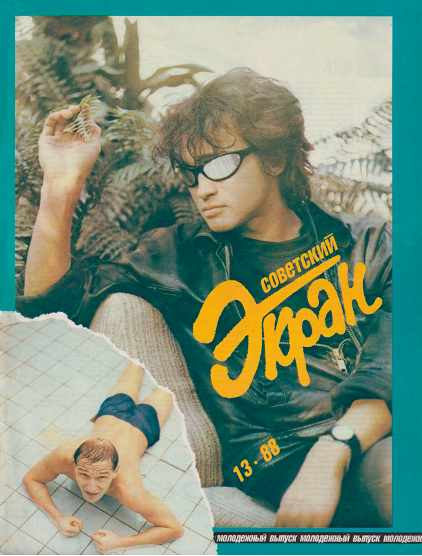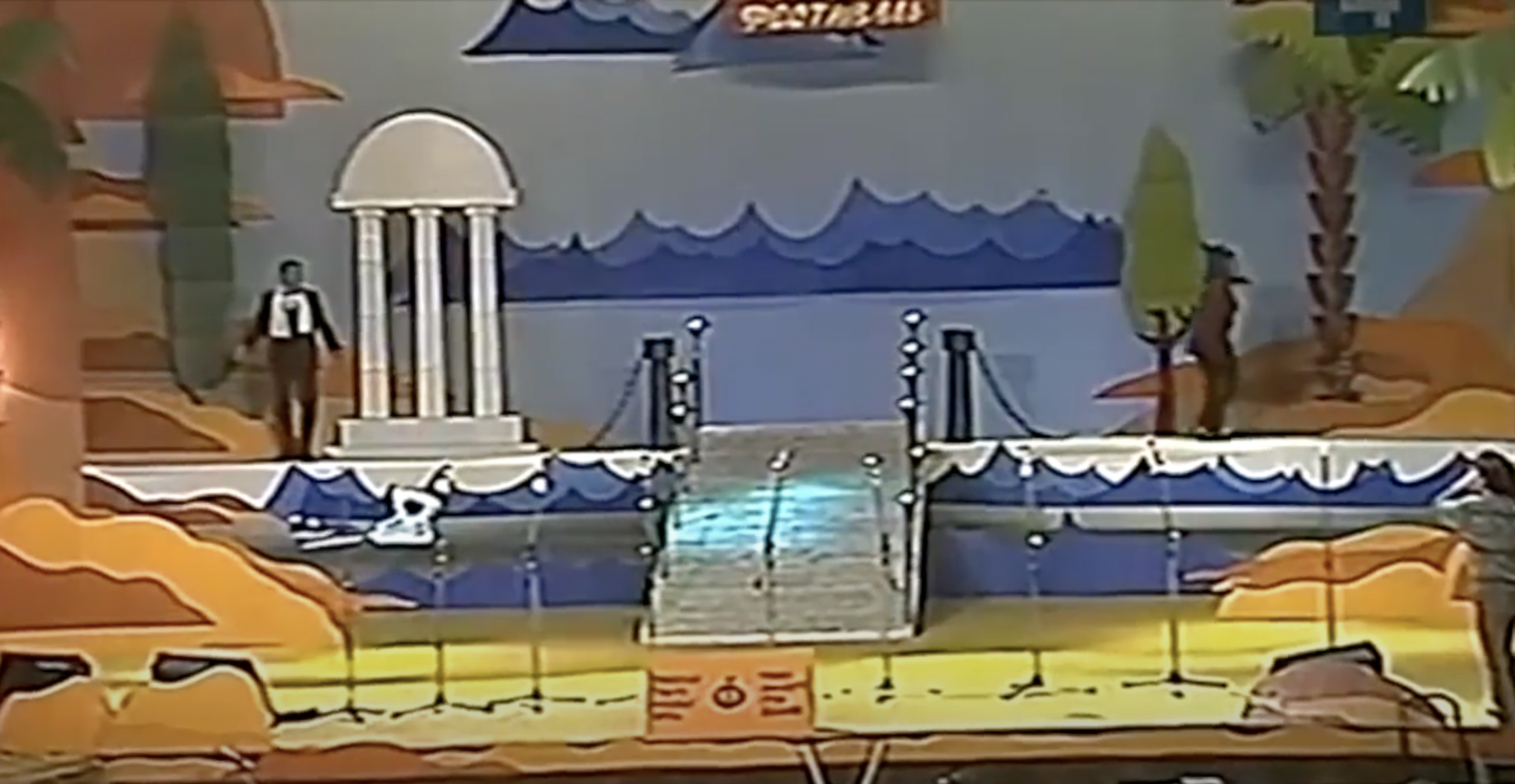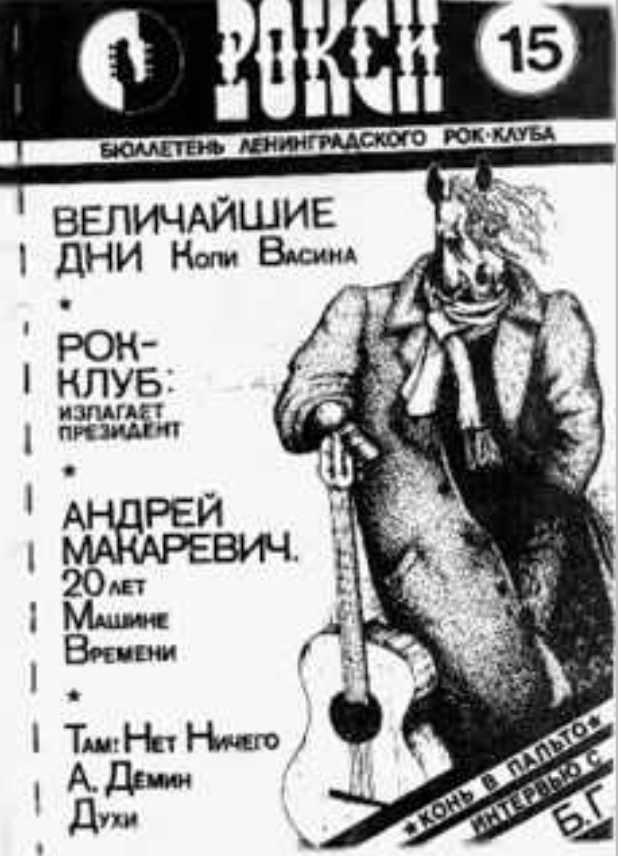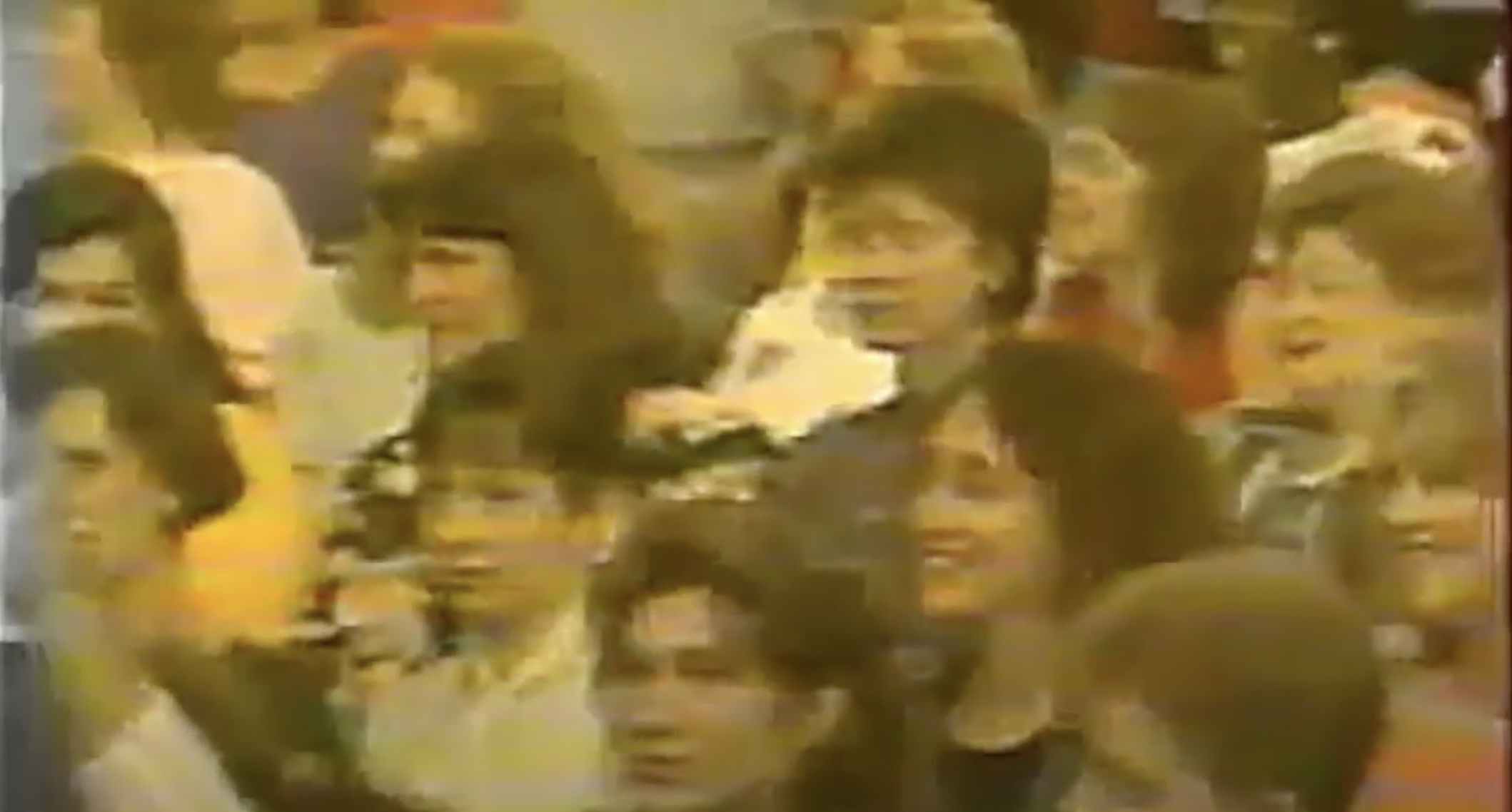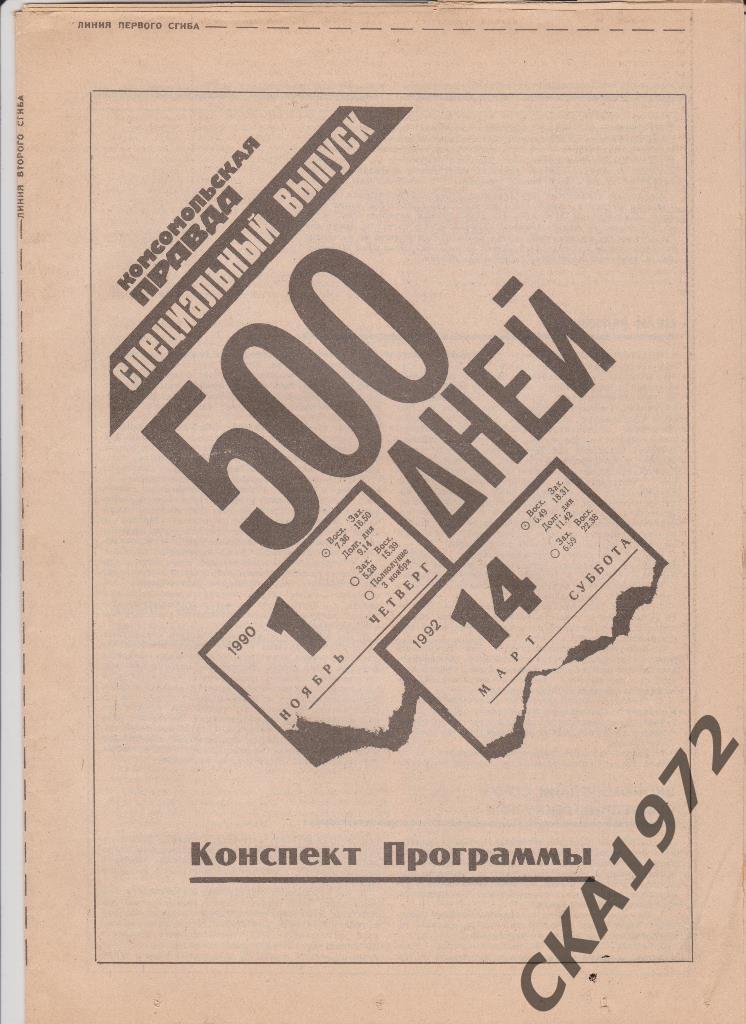Search Results
Search Terms
Results: Displaying Artifact 91 - 96 of 223 in total
Text Containing:
Fields: Human Readable Date
Page: 16
“Sovetskii ekran” with Tsoi on cover, 1988
The cover image from Volume 13 (1988) of Soviet Screen (Sovetskii ekran, 1925-1998) depicts Viktor Tsoi (1962-1990) of Kino and Pyotr Mamonov (1951-2001) of the Moscow-based rock band Zvuki Mu, demonstrating how late-Soviet cinema magazines established rock musicians as cultural icons, while the film industry increasingly relied on underground rock culture for commercial content.
Losing the Soviet nation on "KVN"
The winter 1992 opening broadcast of the amateur variety and improv contest show “KVN” (“the Club of the Jolly and Resourceful”). Filmed just a few months after the dissolution of the USSR, the episode features former Soviet university teams lamenting the new national borders appearing all around them.
Last issue of the samizdat “Roksi” magazine, 1990
The final print issue of the Leningrad-based samizdat rock journal Roksi, founded in 1977 by members of the rock band Aquarium and the future president of the Leningrad Rock Club (LRC). Considered the first rock publication in the Soviet Union, and subject to raids by the KGB, Roksi eventually became the official newsletter of the LRC—thus attaining legitimization by the state apparatus.
Perestroika-era Russian Women Speak to US Women
A clip from one of many perestroika-era televised conversations between American and Soviet "regular people," in which they find common ground with the help of longtime Soviet propagandist and future star of liberal post-Soviet TV, Vladimir Pozner (1934-).
“500 Days: Program Summary,” a special issue of "Komsomolskaya pravda"
A special issue of the long-running Soviet daily "Komsomolskaya pravda" dedicated to economist Stanislav Shatalin's (1934-1997) "500 days" plan for economic reform under Mikhail Gorbachev (1931-2022).
View Artifact
No preview available
